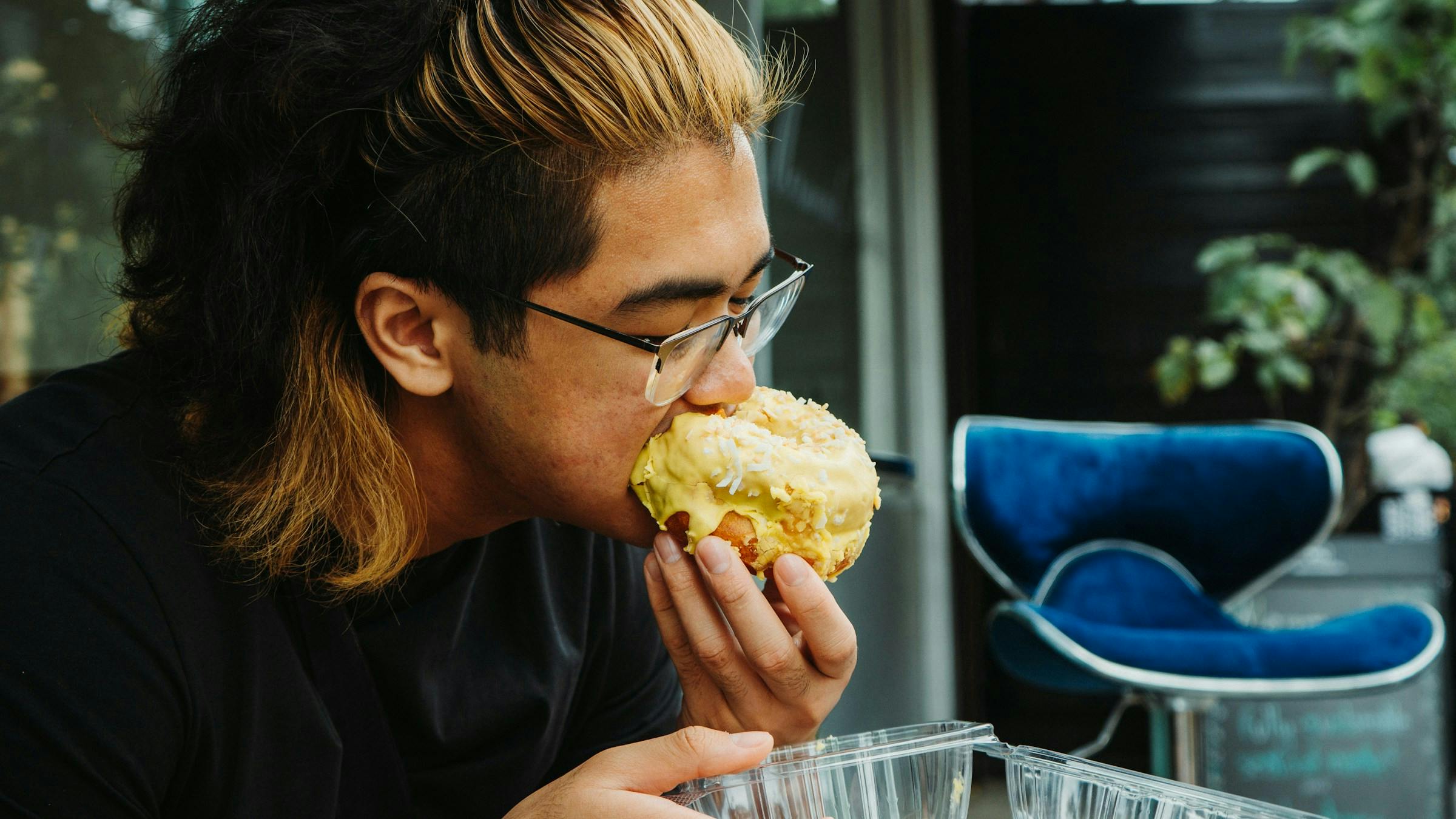7 Common Foods That Slow Down Wound Healing (And What to Eat Instead)
By Karyn O.
Reviewed by Dr. Jossy Onwude, MD
Published Apr 22, 2025
9 min read

If you’ve recently had surgery, suffered an injury, or are recovering from a skin condition, you’re probably focused on resting, taking your medication, and following your doctor’s instructions. But there’s one more thing that plays a big role in how fast (or slow) you heal—and it’s something we often overlook.
It’s your food.
Yes, what you eat can either help your body repair itself or delay the healing process. Some foods promote inflammation, spike your blood sugar, or interfere with the nutrients your body needs to heal wounds and regenerate tissue.
In this article, we’ll look at seven common foods that could be slowing down your recovery—and what you should eat instead to give your body the best chance to bounce back quickly and fully.
Why Food Matters When You’re Healing
Before we dive into the list, let’s talk about why your diet matters so much when you’re recovering from a wound.
Wound healing isn’t a one-step process. Your body goes through several stages, including inflammation, tissue growth, and finally, tissue remodeling. Each of these steps requires certain nutrients like protein, vitamin C, zinc, and healthy fats. If you’re not getting the right nutrition—or worse, eating foods that work against you—it can take much longer for your body to heal.
For example, if you’re eating a lot of sugar or processed foods, you might be increasing inflammation in your body without realizing it. This slows down your immune response, damages collagen (the protein that helps rebuild skin), and makes it harder for new tissue to form.
Let’s take a closer look at the worst offenders.
1. Sugary Foods and Drinks
Sugar might taste good, but it’s one of the worst things you can eat when you’re trying to heal a wound. Foods high in sugar, like soda, candy, baked goods, and even many cereals, cause your blood sugar levels to spike. When this happens, it can interfere with your immune system and slow down the healing process.
Here’s why: high blood sugar weakens the ability of your white blood cells to fight off bacteria. That means you’re more likely to get an infection. Sugar also damages collagen, which your body needs to rebuild skin and tissue.
Even worse, people with diabetes or prediabetes are already at higher risk of slow wound healing. So if you’re healing from a cut, scrape, or surgery, it’s smart to cut back on sugar as much as possible—even if you don’t have blood sugar issues.
What to eat instead:
Reach for fruits that are lower in sugar but high in antioxidants, like berries, apples, or citrus fruits. These contain vitamin C, which helps rebuild skin and boosts your immune system.
2. Fried and Greasy Foods
Crunchy fries, fried chicken, and greasy fast food might be comfort food, but they can do real damage when your body is trying to repair itself.
These foods are usually cooked in oils high in trans fats or omega-6 fats. While your body does need some fat to heal, too much of the wrong kind can cause widespread inflammation. And inflammation is the last thing you want when your body is trying to heal.
When you’re inflamed, your body stays in the early stages of healing longer than it should. This can make wounds take longer to close and increase the risk of scarring or infection.
What to eat instead:
Choose healthy fats like avocado, nuts, seeds, and olive oil. You can also try baking or air-frying your food for a crispy texture without the unhealthy oils.
3. Processed Meats

Hot dogs, bacon, pepperoni, and deli meats may be convenient, but they’re not doing your body any favors during recovery.
These foods are high in sodium, preservatives (like nitrates), and unhealthy fats. Sodium can increase fluid retention and raise your blood pressure, making it harder for nutrients and oxygen to reach your wound. Nitrates and other additives may also promote inflammation.
Processed meats are also low in the nutrients your body actually needs to heal, like zinc, vitamin C, and quality protein.
What to eat instead:
Go for lean, fresh proteins like chicken breast, turkey, fish, eggs, tofu, or beans. These help rebuild tissue and support a strong immune response.
4. Refined Carbohydrates
White bread, white rice, regular pasta, and baked goods made with refined flour all fall into this category. These foods are quickly broken down into sugar once they enter your body, which causes your blood sugar to spike, just like with candy and soda.
As you now know, high blood sugar can interfere with the healing process by increasing inflammation and damaging white blood cells. Over time, eating too many refined carbs can even lower your body’s natural ability to fight infections.
What to eat instead:
Whole grains like oats, brown rice, quinoa, and whole wheat bread are better options. They give your body long-lasting energy and contain fiber, which supports gut health (important for your immune system).
5. Alcohol
A glass of wine might help you relax, but alcohol is another thing you’ll want to avoid if you’re trying to recover from a wound.
Here’s why alcohol is a problem: it reduces your body’s ability to absorb important nutrients like vitamin C, zinc, and protein. It also suppresses the immune system and dehydrates your tissues, which can dry out your skin and make it harder for wounds to close.
In some cases, alcohol can even increase bleeding or interfere with medications, including antibiotics.
What to drink instead:
Water should be your go-to. Staying hydrated helps your body flush out toxins and keep your skin and tissues moist and healthy. You can also try herbal teas or water with lemon, cucumber, or berries for flavor.
6. Too Much Caffeine
A cup of coffee in the morning isn’t going to ruin your healing process. But drinking too much caffeine, especially from energy drinks or large quantities of coffee, can have negative effects.
Caffeine is a diuretic, which means it can dehydrate you if you’re not careful. Dehydration slows down the movement of nutrients and oxygen in your bloodstream, making it harder for your body to deliver what it needs to the wound site.
Some studies also suggest that caffeine might interfere with collagen production, although more research is needed.
What to drink instead:
If you love hot drinks, try green tea, herbal tea, or golden milk. These offer antioxidants and anti-inflammatory benefits, without overloading your system with caffeine.
7. Artificial Additives and Preservatives

Artificial colors, sweeteners, and preservatives are found in many processed snacks, frozen meals, and even some so-called "healthy" foods. These additives may seem harmless, but some of them can interfere with your body’s healing process.
Many artificial ingredients have been linked to increased inflammation, poor gut health, and immune dysfunction. When your immune system isn’t working properly, wounds can take longer to heal, and you might be more prone to infection.
What to eat instead:
Stick to whole, fresh foods as much as you can. Think fruits, vegetables, whole grains, lean proteins, nuts, and seeds. The fewer ingredients on the label, the better.
RELATED READ: Basmati Rice and Weight Loss: Can It Help You Shed Pounds?
What You Should Eat to Help Your Body Heal Faster
Now that we’ve covered what to avoid, let’s talk about the good stuff—foods that actually help your body heal faster and better.
Focus on eating a variety of:
- Protein-rich foods like eggs, beans, tofu, chicken, and fish. These help build new tissue and repair damaged skin.
- Vitamin C-rich foods like oranges, strawberries, bell peppers, and broccoli. These support collagen production and fight off infection.
- Zinc-rich foods like pumpkin seeds, shellfish, whole grains, and legumes. Zinc is essential for cell repair and immune function.
- Healthy fats like avocados, olive oil, chia seeds, and fatty fish. These reduce inflammation and keep your skin healthy.
- Hydrating foods and drinks like water, cucumber, watermelon, and herbal teas.
Eating well during the healing process doesn’t mean being perfect—it means being mindful. Try to build most of your meals around fresh, whole foods and limit things that come in a box or bag with a long ingredient list.
Who Should Be Extra Careful with Their Diet During Wound Healing?
While everyone can benefit from better food choices, some people need to be even more careful.
If you fall into any of these categories, it's especially important to eat a healing-friendly diet:
- People with diabetes or prediabetes, because high blood sugar directly slows wound healing.
- Older adults – since wound healing slows down with age, and nutrient absorption may decline.
- People recovering from surgery – your body is under extra stress and needs more nutrients.
- People with weakened immune systems, because their body already has to work harder to fight off infections.
- People with chronic wounds (like ulcers or bedsores), since poor nutrition can prolong healing even further.
Final Tips for a Healing-Focused Diet
Healing doesn’t just happen in your doctor’s office or while you’re resting. It happens every time you eat.
Here are a few extra tips to help you get the most out of your diet while you recover:
- Eat consistently. Don’t skip meals—your body needs steady fuel to repair itself.
- Stay hydrated. Even mild dehydration can slow tissue repair.
- Don’t go on a crash diet. Cutting calories too low deprives your body of essential nutrients.
- Talk to a professional. If you have a special diet or a condition like diabetes, check in with a dietitian or healthcare provider for guidance.
FAQs
1. Can certain foods make a wound worse?
Yes, sugary, fried, and processed foods can increase inflammation and slow down your immune response, making wounds heal more slowly.
2. How does sugar affect healing after surgery?
Sugar raises blood glucose levels, which weakens immune function and interferes with collagen formation, both of which are critical for healing.
3. What should I eat after getting stitches or surgery?
Focus on protein, vitamin C, zinc, and healthy fats. Drink plenty of water and avoid processed foods.
4. Can I drink alcohol during recovery?
It’s best to avoid alcohol while healing, as it can weaken your immune system, interfere with medications, and slow down wound healing.
Final Thoughts
Healing is a full-body process, and your food plays a major role. Avoiding foods that cause inflammation, spike your blood sugar, or interfere with tissue repair can make a huge difference in how fast and smoothly you recover.
So next time you’re reaching for a snack, think about what your body needs to rebuild, repair, and get stronger. Every bite counts.
Share this article

Low Sodium Diet: Simple Guidelines, Food Lists, and Tips for Better Health
Lilian E.
Sep 30, 202512 min read

Does Coconut Milk Affect Blood Sugar Levels? A Complete Guide for Diabetes and Healthy Living
Karyn O.
Sep 29, 202510 min read

5 Best Bone Broths for Health, Nutrition, and Gut Support (Nutritionist-Backed Guide)
Karyn O.
Sep 24, 202511 min read

Best-in-class care is a click away
Find everything and everyone you need to reach your metabolic health goals, in one place. It all makes sense with Meto.
Join Meto